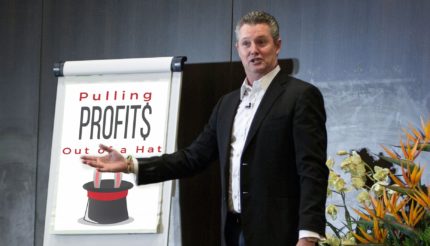“Every day’s a school day”, not sure where this quote has come from originally, but it certainly resonates with me now days. As a youngster I’m not proud to admit the the only things I read were Shoot & FourFourTwo, both football magazines. My sister would be the one reading in her bedroom, I was usually either out playing football or reading about it. How things have changed! I am now reading a book a month and listening to an Audible book a month. Strange, how I now know a lot more stuff about business & life in general!
Following our very successful Business Excellence Forum in April, I have finished James Clear’s book Atomic Habits. James was a guest speaker at BEF and shared many insights taken from his best selling book.

James talks about the surprising power of 1% improvements every day. He looks to Systems over and above Goals and explains the difference; Goals are about the Results you want to achieve. Systems are about the processes that lead to those results.
If you are a sports coach, your goal might be to win a championship. Your system is the way you recruit players, manage your assistant coaches and conduct practice.
If you’re an entrepreneur, your goal might be to build a million pound business. Your system is how you test product ideas, hire employees and run marketing campaigns.
Well worth a read if you are looking for motivation and a clear strategy to follow.
We have just completed the Student loan applications for two of my three daughters. Despite the large debts that they will exit University with, it doesn’t change the fact that the average graduate earns considerably more money than those who did not advance beyond sixth form. On average, they enjoy lower unemployment rates and a better overall quality of life than the average person without a university education. Now there are plenty of exceptions to this general rule – having a degree does not guarantee that you’ll live well, just as the lack of having a degree does not guarantee poverty by any means. But the statistics speak for themselves: the more you learn, the more you earn. However, we must not dismiss hard work & effort plus being in the right place at the right time – luck!

Malcolm Gladwell’s excellent book “Outliers – The Story of Success” highlights the many factors that affect the level of success some people achieve and why everyone is not being offered the same opportunities. Gladwell explains that there is no such thing as an “overnight sensation”. In order to become great at something you will need to spend 10,000 hours doing that something.
- He talks about the Beatles, playing in Hamburg for 8 hours a night, every night.
- Bill Joy, the computer expert, who took advantage of the huge local mainframe computer at the University of Michigan.
“Learning” frequently implies university, but that is far from the only kind of learning you can partake in to increase your worth in the business world. Learning trades is an incredibly viable (not to mention well-paying) option, and mastering the myriad of skills and intricacies required to run a successful business will guarantee that you will never go hungry. The only constant between successful people and unsuccessful people is that successful people earn more because they have chosen to learn more.
The principle of the more you learn, the more you earn is also designed to be taken into consideration with what other people are learning as well. Knowing which things to learn is as important as learning the skill itself, and making an informed decision can mean the difference between earning a little bit more and earning a LOT more.
In summary: the future of the workforce lies in brains, not brawn. Being able to contribute from the head up will ensure that you cannot be replaced so easily. The automation of certain jobs is the fore runner to what will eventually happen to many other fields, but it’s important to understand that this is happening in fields populated by workers who work from the neck down, not the head neck up. A person who develops the software to run robots will be in a much safer place whatever the future holds.





